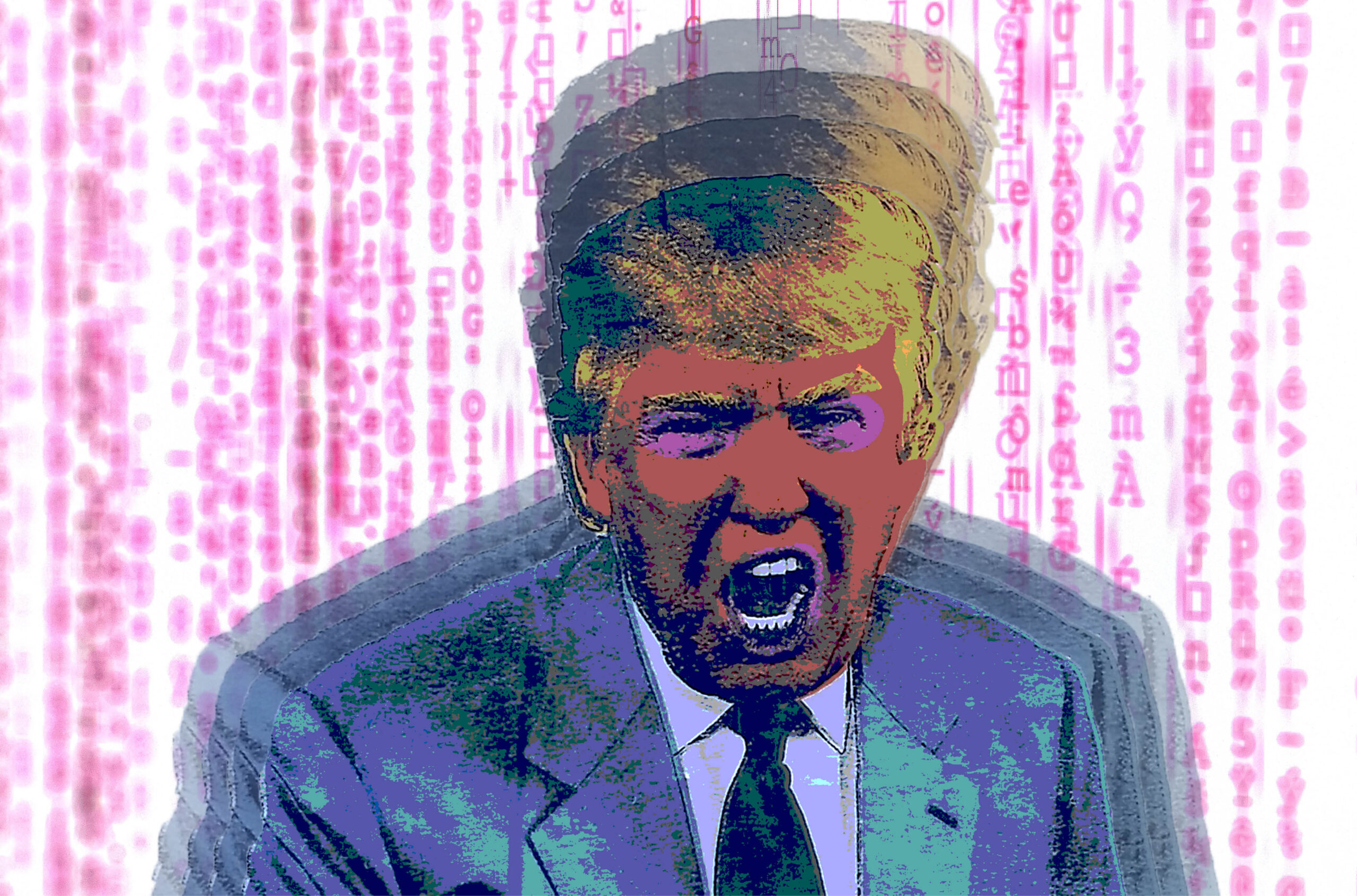Data vs MAGA
Academics and librarians scramble to save U.S. government records from Trump’s axe.

On the January 20, 2025, presidential inauguration day in the United States, academics and librarians across North America were glued to their laptops — not watching the proceedings, but backing up vulnerable information. Since President Donald Trump’s election in November 2024, they had been duplicating government web pages, interactive tools and datasets in case the new administration decided to change, delete or irretrievably conceal them.
By the end of January, about 2,000 pages had gone missing from the total inventory of about 310,000 pages on U.S. federal government websites. “That’s 2,000 missed opportunities; 2,000 things that people won’t find there anymore,” says Eric Nost, associate professor of geography, environment and geomatics at the University of Guelph.
Then, in a January 20 order, the U.S. government directed all federal agencies to acknowledge only two biological sexes and to “remove all … internal and external messages that promote or otherwise inculcate gender ideology.” Information such as the results of the Youth Risk Behavior Survey were taken down — although that particular page was later restored after a court order, with a disclaimer stating that the administration rejects its contents.
It’s normal for government digital materials to change as they are revised or become redundant. When new governments come in, more rewrites and deletions happen, often reflecting the agenda of the administration. “The surprising thing here has been the scope and speed of these changes,” says Dr. Nost.
Dr. Nost works with the U.S.-based Environmental Data and Governance Initiative (EDGI), a group formed in 2016 during the first Trump administration whose mission includes safeguarding vulnerable environmental data. “We saw fairly significant efforts to change website language and the way issues such as climate change and energy were described,” Dr. Nost says of President Trump’s first term, adding that datasets were largely left untouched at that time. “This time around, the scope of changes is much wider.”
Recently, Dr. Nost has been duplicating interactive tools used to access datasets, including the Climate and Economic Justice Screening Tool, which was taken down on January 22. He helped recreate the interactive map and repost it on the site of a climate group.
While Dr. Nost is Canadian and the data is American, it’s hugely important to him and to his colleagues. “The U.S. federal government is the world’s largest publisher of information,” he says. Kristi Thompson, research data management librarian at Western University, noted, “People go to their data because they have great, detailed data sets. A lot of Canadian research and worldwide research is based on those sets.”
Concerns in Canada
Ms. Thompson is part of group of about 50 people with the newly hatched Canadian Data Rescue Project, which is backing up minor government department sites. “There is a clear assault on public data and public knowledge going on in the United States,” she says. “If you destroy the trust in public data collection, that’s significant. And I’m concerned the same thing could happen in Canada.”
Prior to the Canadian federal election in April 2025, Katie Cuyler, open publishing and government information librarian at the University of Alberta, was doing her part to safeguard information as part of the End of Session Archive conducted by Internet Archive Canada. “The vibe is chaotic and uncertain,” she said of that time.
Established in 2004, Internet Archives Canada is affiliated with California-based Internet Archive, which digitizes books and preserves old versions of websites on its Wayback Machine. One of the first digital preservation initiatives, the Internet Archive dates to 1996, when the Internet itself was growing and becoming increasingly accessible. Like newspapers, the content published on the web was ephemeral — but unlike newspapers, no one was saving it.
More groups and projects started in 2008, with elections on both sides of the Canada-U.S. border in a digital era. Libraries, which used to keep paper copies of government documents, had begun making virtual backups. In the U.S. the End of Term Web Archive launched, while Internet Archive Canada began backing up government data.
In 2010, Prime Minister Stephen Harper’s Conservative government abolished the long-form census. In 2012, it defunded of the First Nations Statistical Institute and closed a slew of federal government libraries. In response, a group of committed library professionals launched the Canadian Government Information Digital Preservation Network (CGI-DPN). “What happened in 2012 really lit a fire,” says Ms. Cuyler.
Finding better ways to save
There are a dizzying number of groups and projects tackling the preservation of vast amounts of tough-to-track information. “What’s freaky about datasets is when they’re gone, they’re just gone. You’re relying on other things to know they even existed,” says Ms. Thompson.
Now, those doing this work are seeking to improve their protocols. “While the data does not go away, it becomes harder to access,” says Matt Price, assistant professor of history at the University of Toronto, who works with EDGI. “We’ve had initiatives to back up dataset but nobody ever used the data. It was like we took the family inheritance and put it into big glass jars and buried it in the backyard.”
There’s a push to establish common repositories and to ensure that academics, librarians, students and the public know where to find them. The Wayback Machine is well-known, and librarians are promoting the repository Borealis, a partnership of numerous university libraries hosted at U of T, which contains materials such as agricultural and environmental datasets.
As well, saved information needs care over time, says Andrea Mills, executive director, Internet Archive Canada. “Some of the government documents that we have digitized are almost 20 years. We have to go back and do the optical character recognition over again, improving formats and leveraging new technology.”
Big tech risks
Dr. Price struggles with storing materials on cloud platforms run by tech giants such as Google and Amazon Web Services, some of which offer in-kind donations to U.S. data-backup groups. According to CNN, Amazon and Google each donated $1 million to President Trump’s inaugural fund. “I think we should be careful. We should recognize that we are entrusting important work to untrustworthy actors,” Dr. Price says.
In a perfect world, Canada would collect more of its own data, and the safety of evidence-based materials would be carefully protected here and elsewhere. For now, there’s backing up, coding, collaborating and hoping for the best. “This is a stressful time,” says Ms. Cuyler, “and a reminder that democracy takes a lot of work.”
Featured Jobs
- Medicine - Chief Administrative OfficerUniversity of Toronto
- Medicine - Associate or Full Professor Professor (Kidney Health)Université de Montréal
- Finance - Faculty PositionUniversity of Alberta
- Sociology - Tenure-Track Position (Crime and Community)Brandon University
- Engineering - Assistant or Associate Professor (Robotics & AI)University of Alberta







Post a comment
University Affairs moderates all comments according to the following guidelines. If approved, comments generally appear within one business day. We may republish particularly insightful remarks in our print edition or elsewhere.